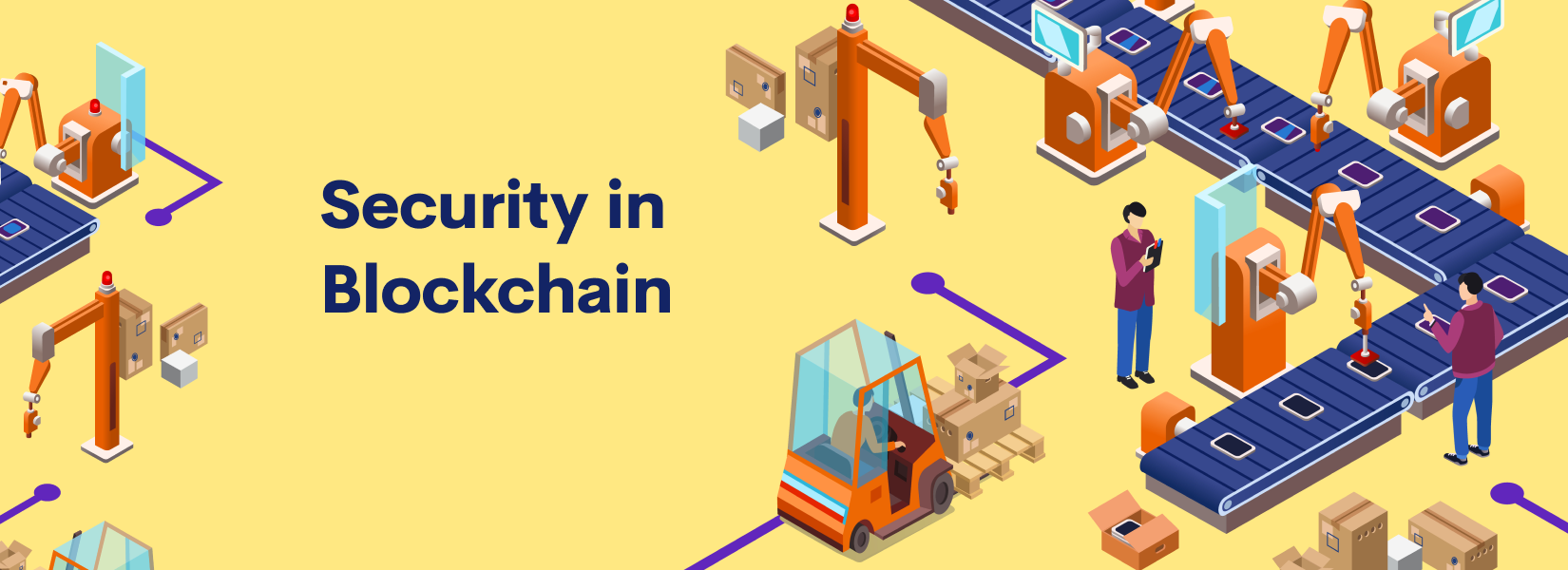Security in Blockchain is far more important than you think
The decentralized architecture changed the course of many business applications recently. Many claim that Blockchain based applications provide a higher level of security compared to traditional applications. Does that mean, we finally found a technology that can’t be hacked or are we missing the real picture? Read to find out.
Subscribe to our awesome Newsletter.

Blockchain, the next breakthrough
People who understand the potential of Blockchain will worship it every single day and the ones who are skeptical about this new technology will just call it the next buzzword and move on. But the truth is blockchain is evolving and its use cases are revolutionizing the world with its potential. All it needs is the industry acceptance and standardisation. For now, blockchain is restricted and is limited. But once it is unleashed, it will be the next breakthrough technology.
The first and foremost successful product of blockchain is Bitcoin. Slowly this technology spread its wings into the enterprise world. With its arrival, there are lots of real-world applications that were migrated to work with decentralized architecture. Not only did this gain trust among consumers, it also added security to the technology.
Powered with the secure and decentralized technology, blockchain has the potential to revolutionize a lot of industries. Supply chain, patient record system, criminal record system and a lot of real-world use cases can be served with security and power.
The Question of Security
Blockchain, using the power of cryptography makes any information stored on it secure and safe. Only authenticated and authorized users can view or take action on the data.
Bitcoin, the first Blockchain application is secure because of its 51% Consensus approach. Simply it says, if one can take 51% control over the network, it belongs to that user. This is impossible because it needs very high computational power to take that much control over the network. This is the case in public blockchain. So, we call it secured.
But, what about the private blockchain applications?
Public blockchains focus would be to provide anonymity, but the private blockchain’s focus would be the opposite. It needs to know who is trying to access the record, who is trying to access sensitive information in the network and thereby validate access privileges. Here, the consensus approach would be different. This is why the consensus should be planned with scopes and privileges.
In a private blockchain Implementation, each user has to register with the network to enroll and be a part of it. After the registration, he/she can access the privileged data using the private key received during the registration. Only this private key holds the data about the user and his/her access control. By this, any unauthorized action can be noted and can also be punished. Further, the network admin can revoke access to the private key incase a user loses the key. This is not the case with a public blockchain.
Usually, to be more secure, the admin key should be deleted so that no one has the network admin privilege and no one can make any network-level transaction.
Why should I trust Blockchain?
The power of decentralization provides immense security from data tampering. Blockchain inspired technology will be ruling the Web 3.0 and its potential is slowly getting unleashed. Though few are hesitant to understand and adopt new technology, the people who understand its potential are contributing from all over the world.
I once saw a comment on bitcoin.stackexchange.com that read,
To give you an idea of the numbers involved: There are 1,921,075 different addresses in the blockchain. That’s less than 0.000000000000000000000000000000000000001 % of all the addresses that can be generated
No one can brute-force to steal your data. Even if the hacker can live for 10000 lives, he can’t steal your data by brute-forcing.
Blockchain based and inspired technologies are almost in all major domains - storage, streaming and more. Because of its power of decentralization, it can rule most of the domains with security being inherent.
